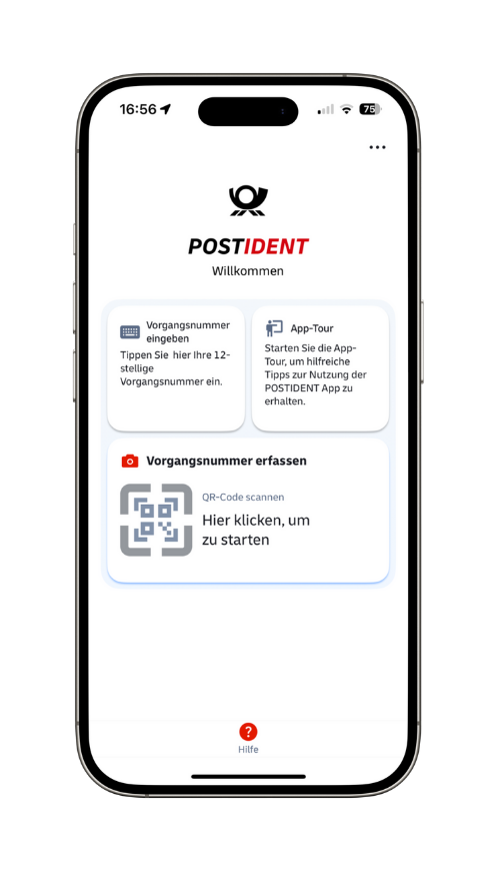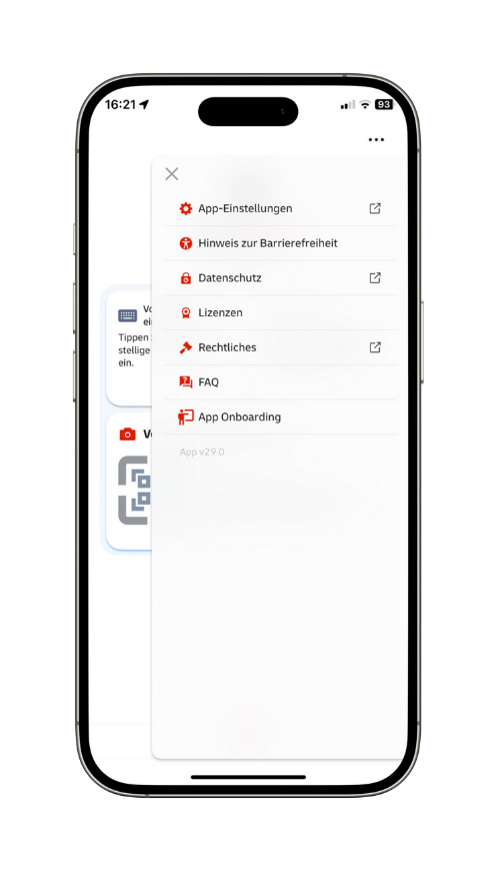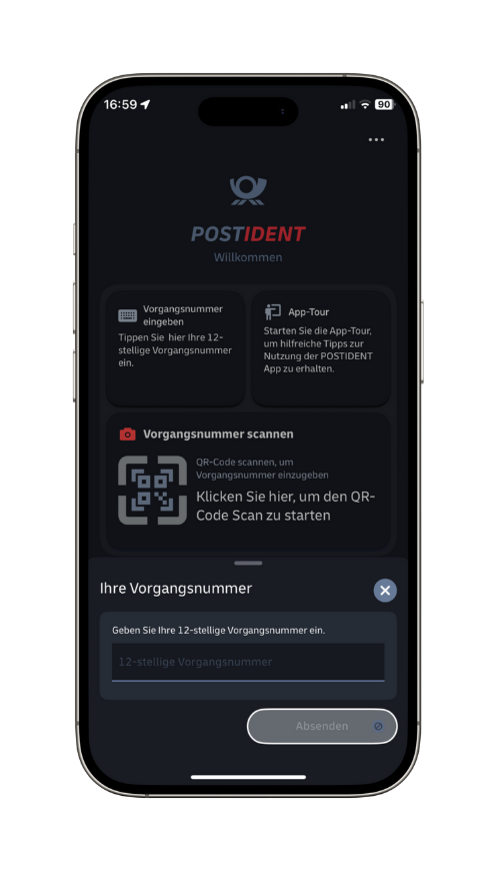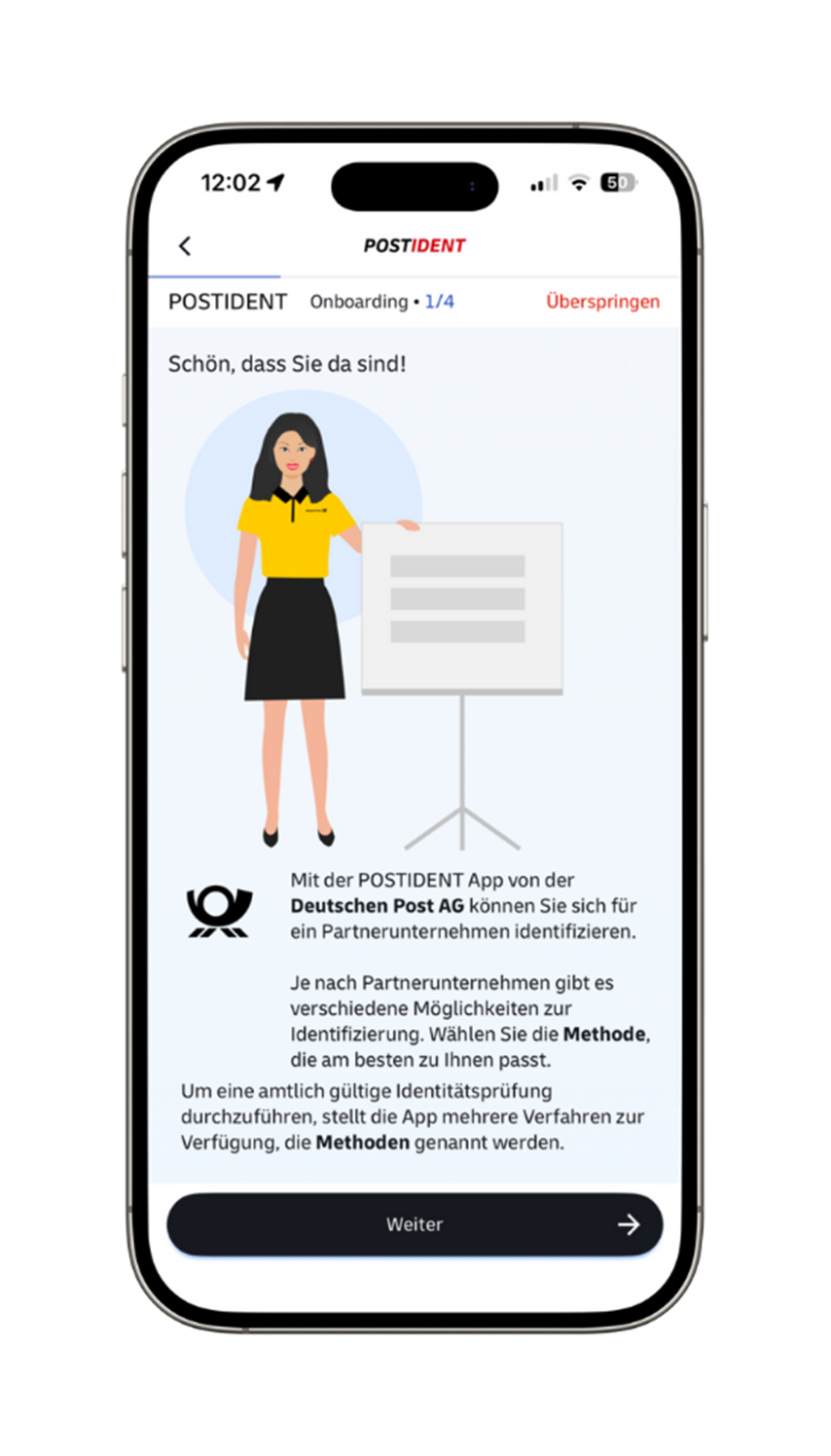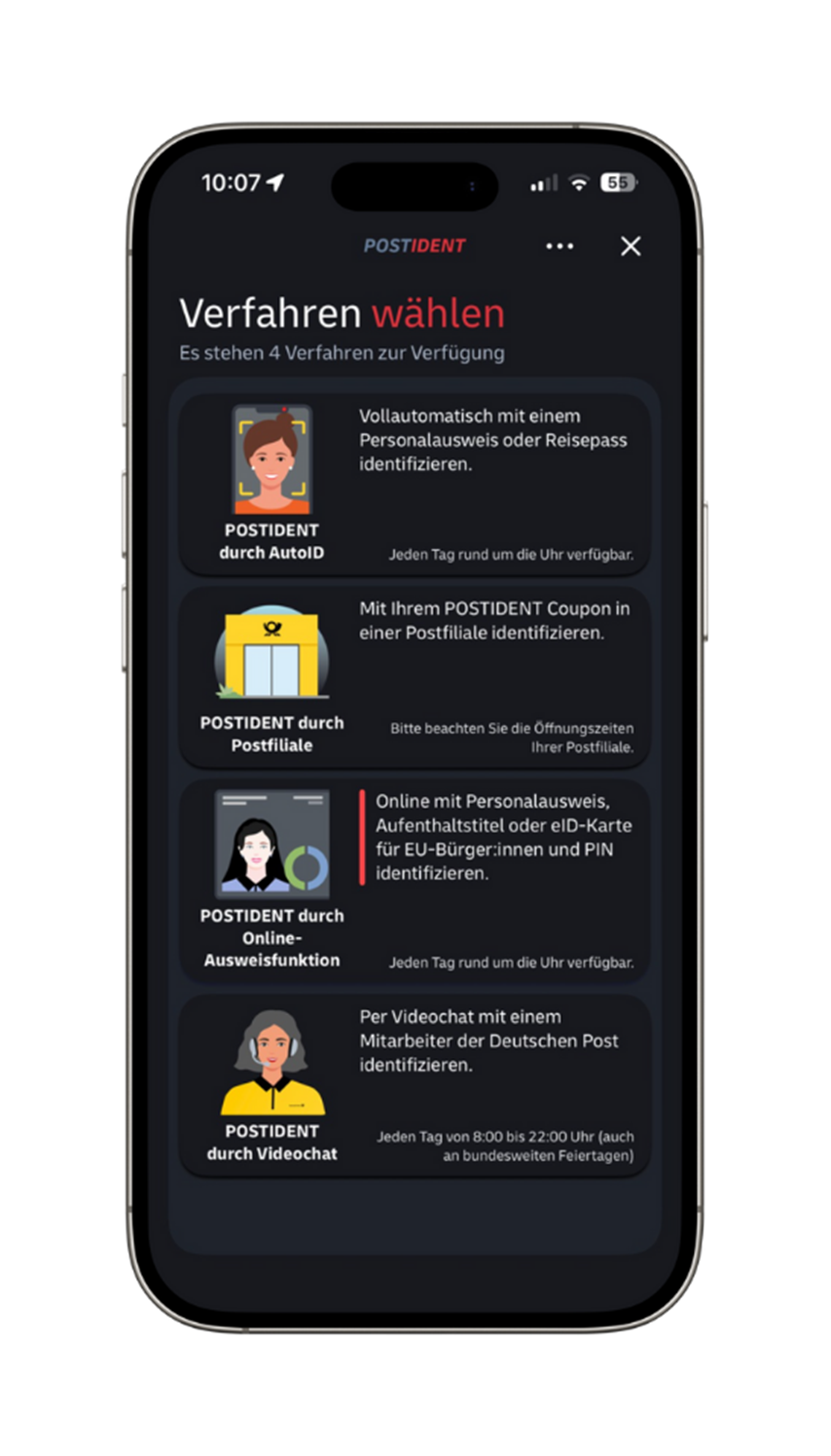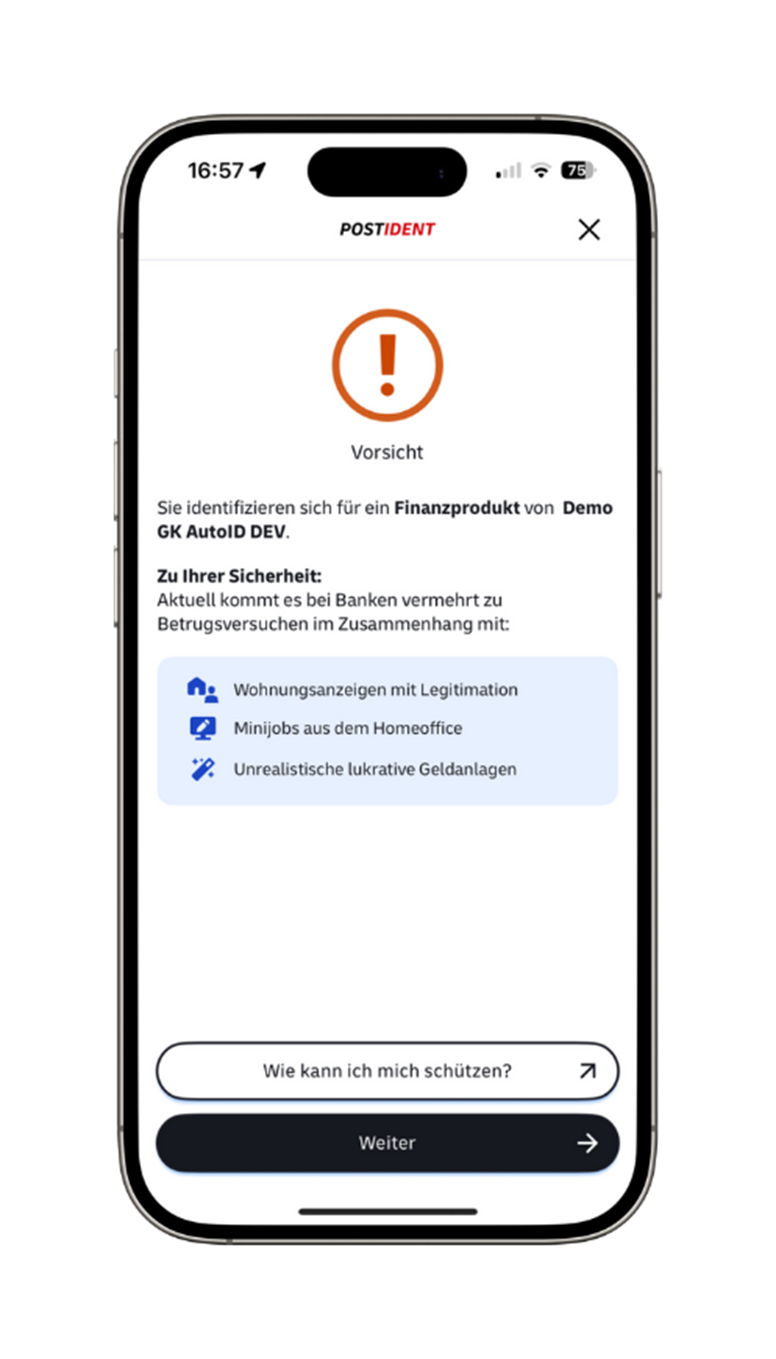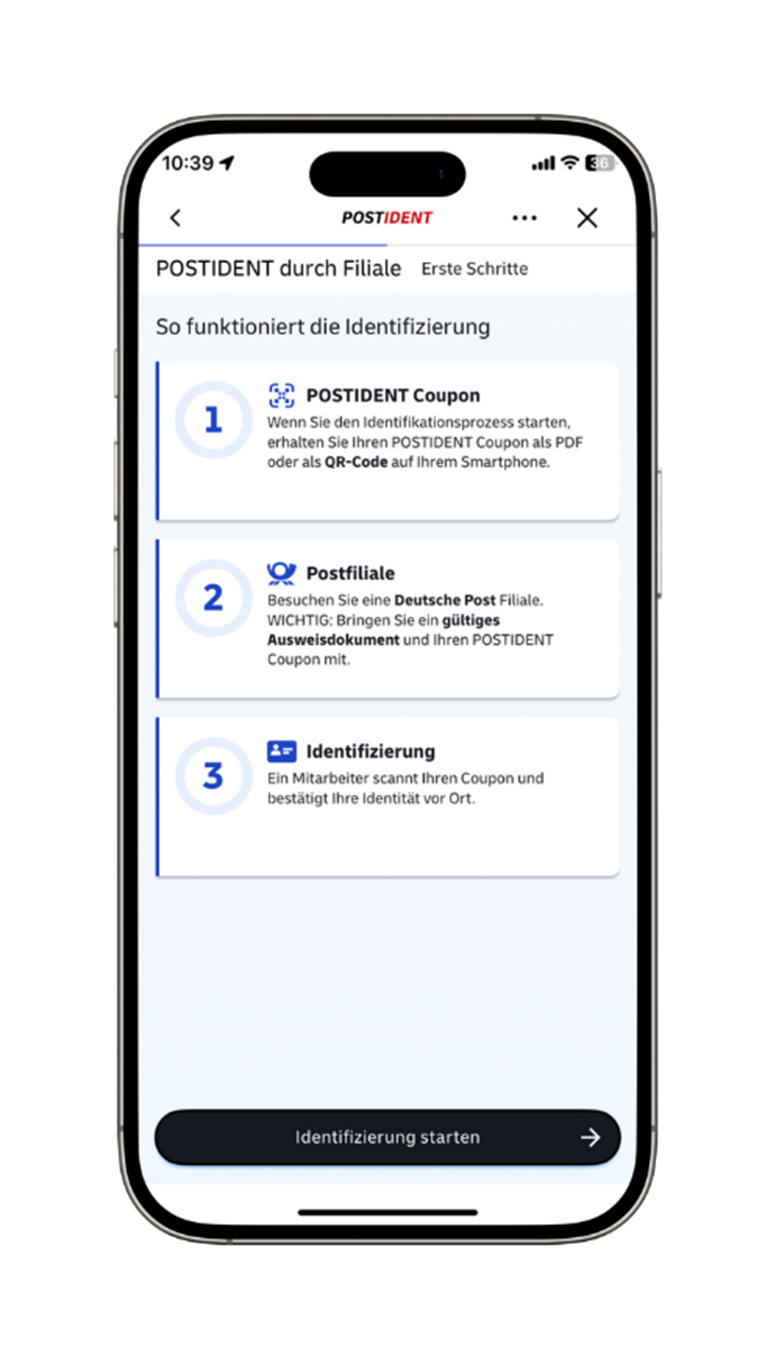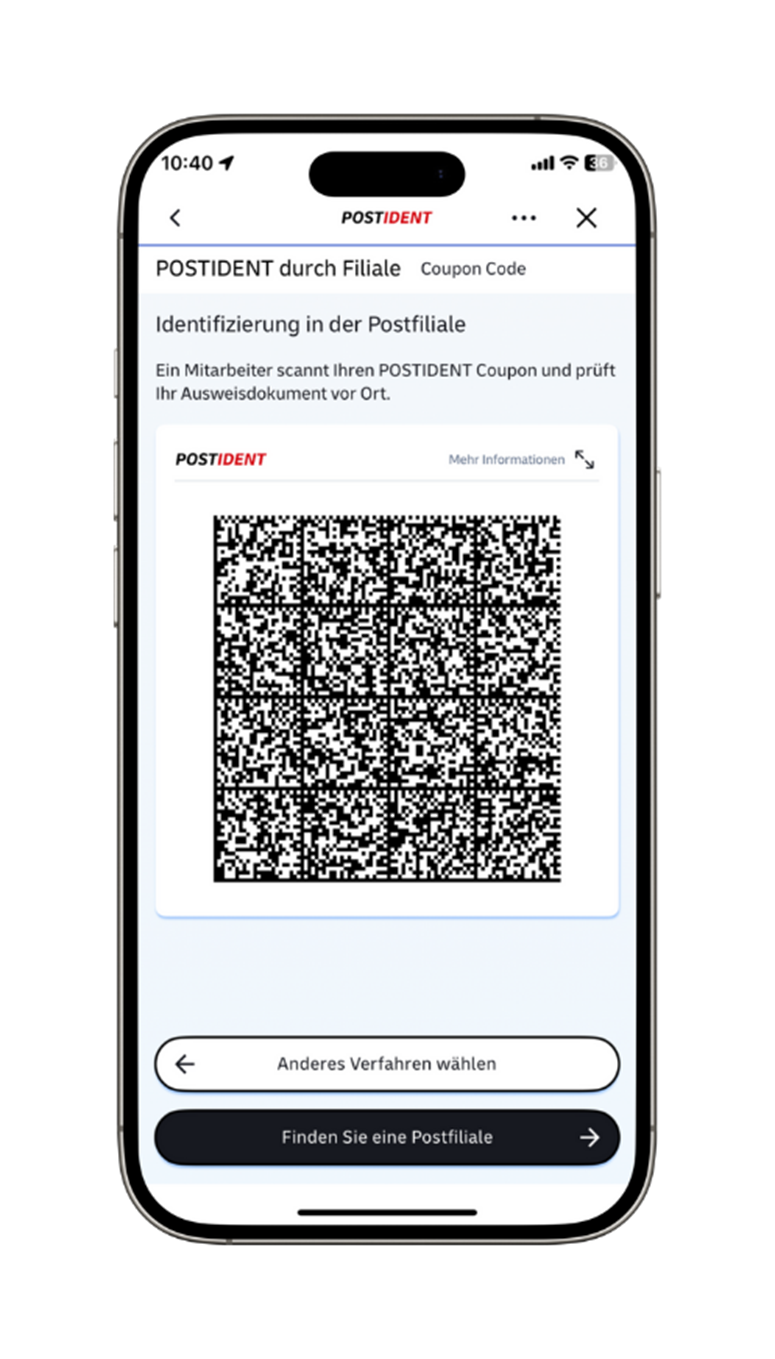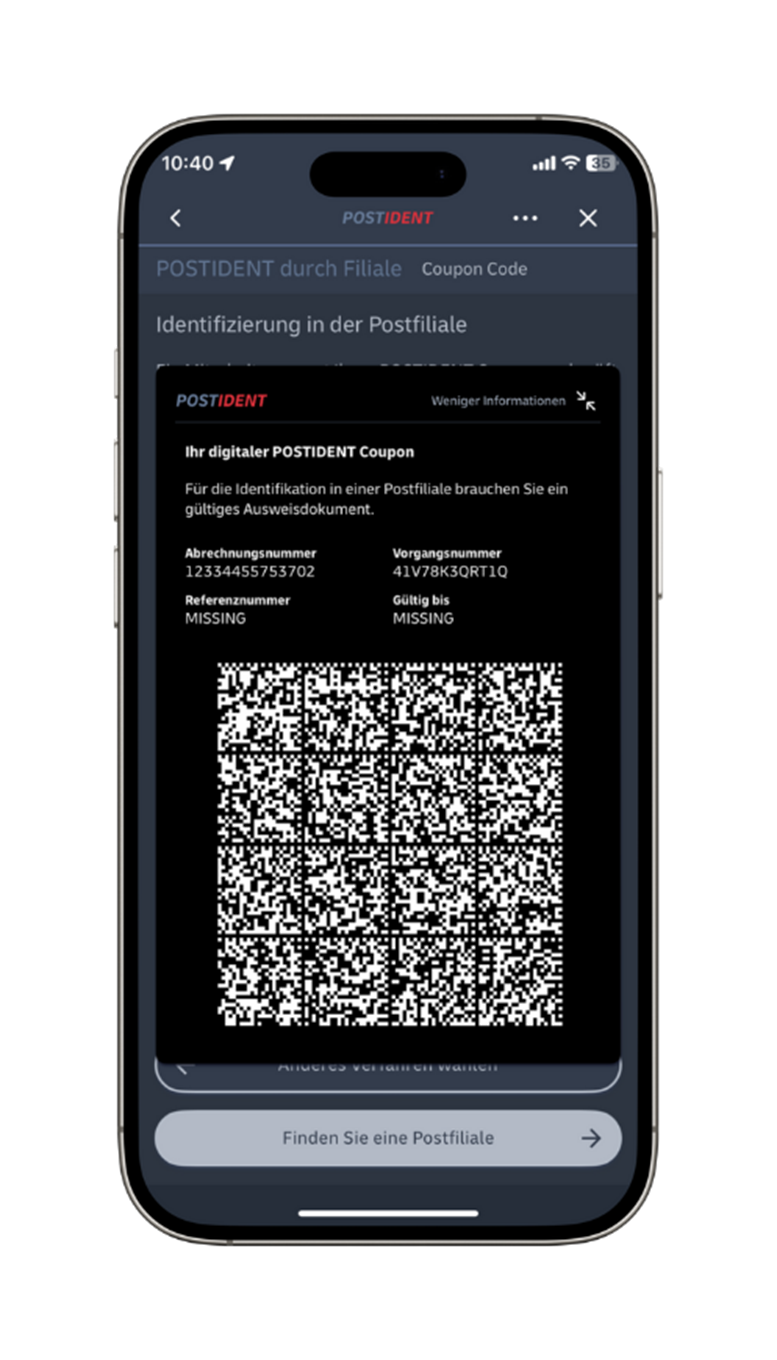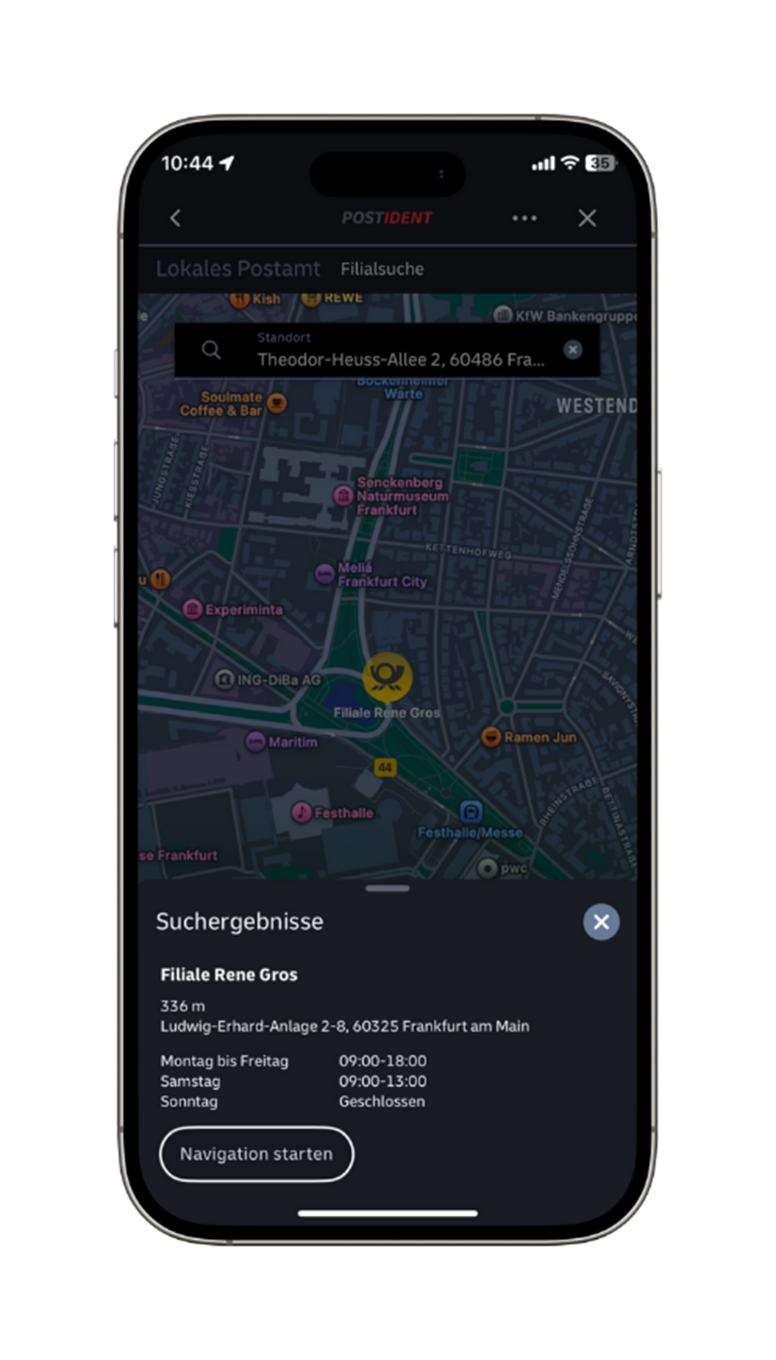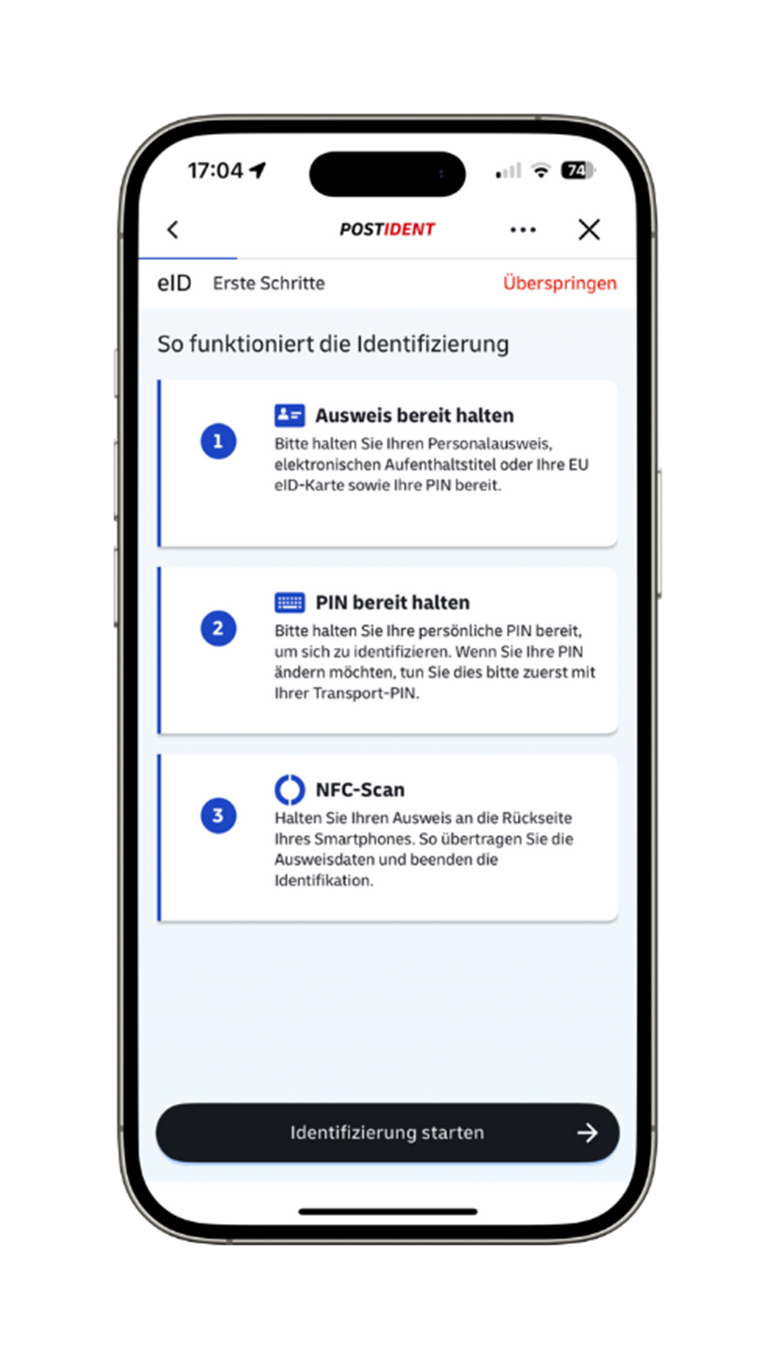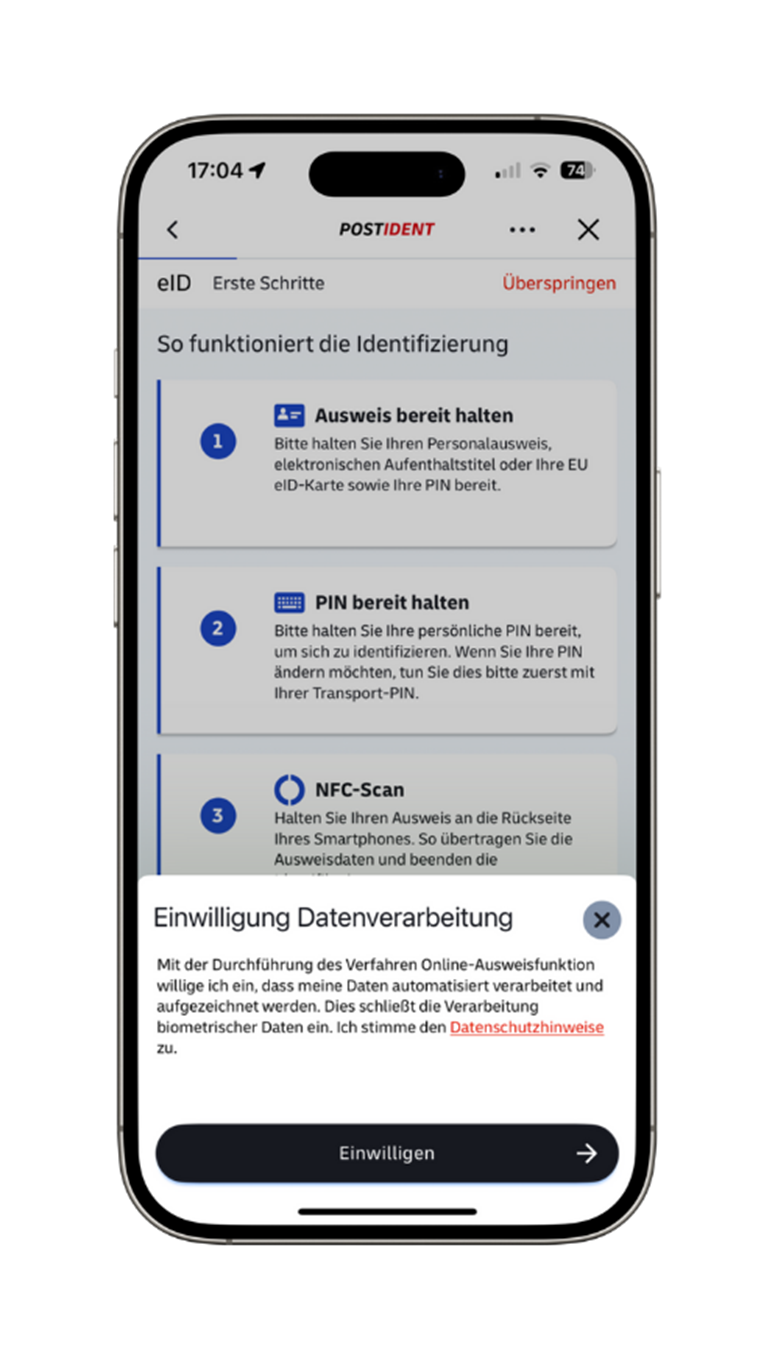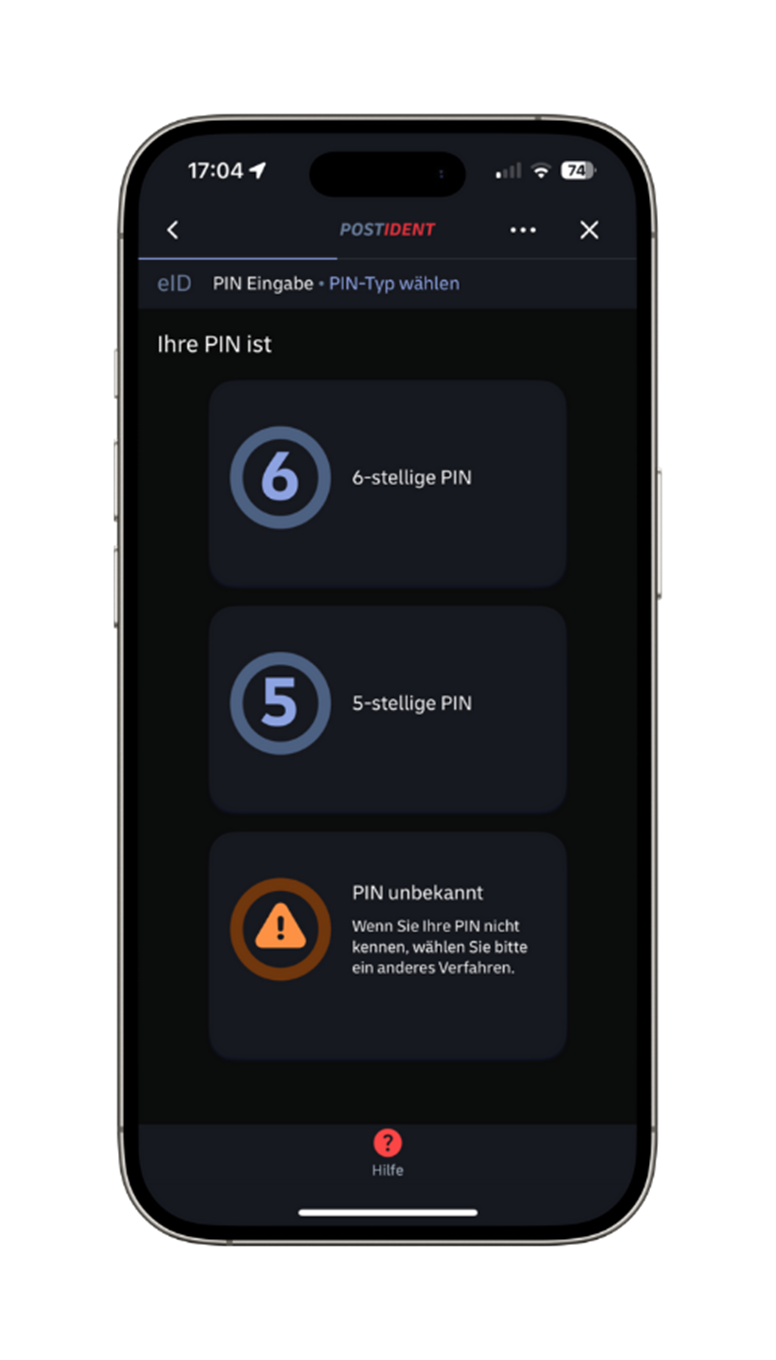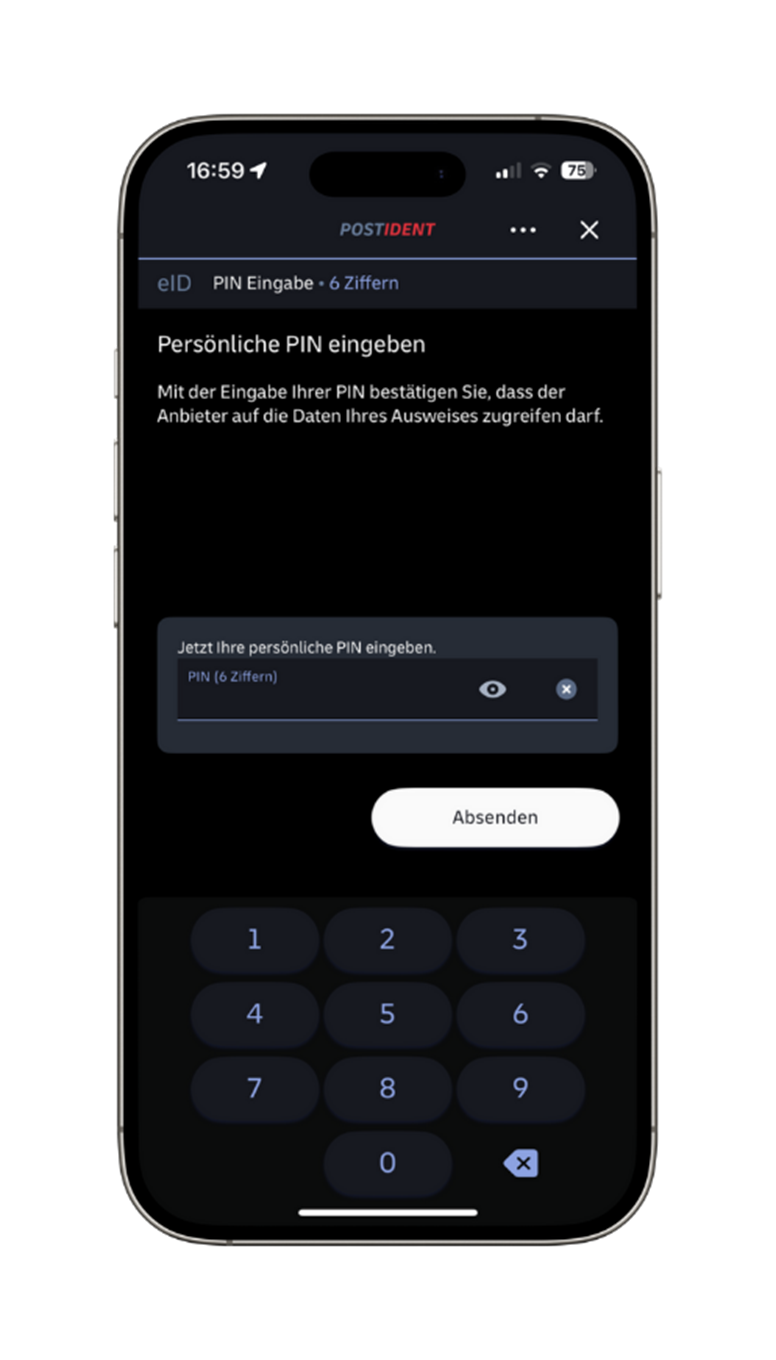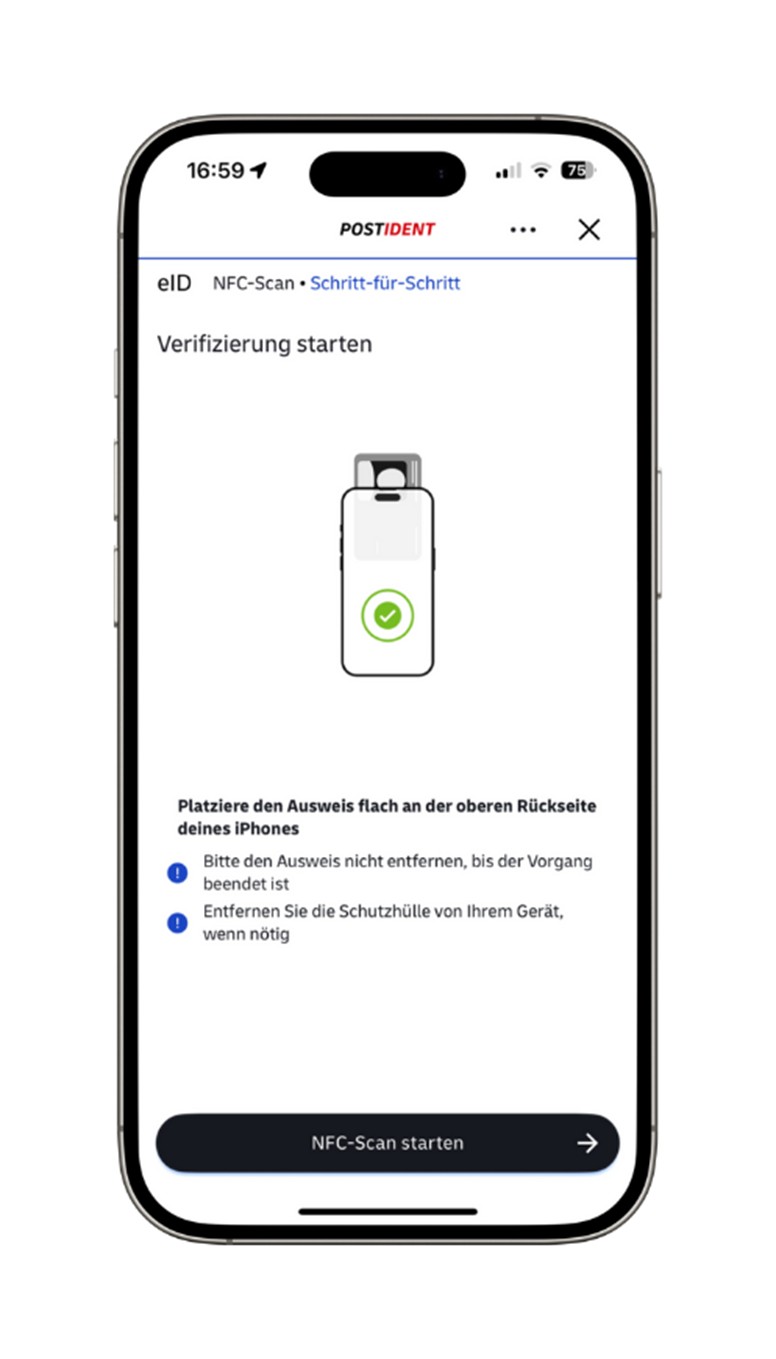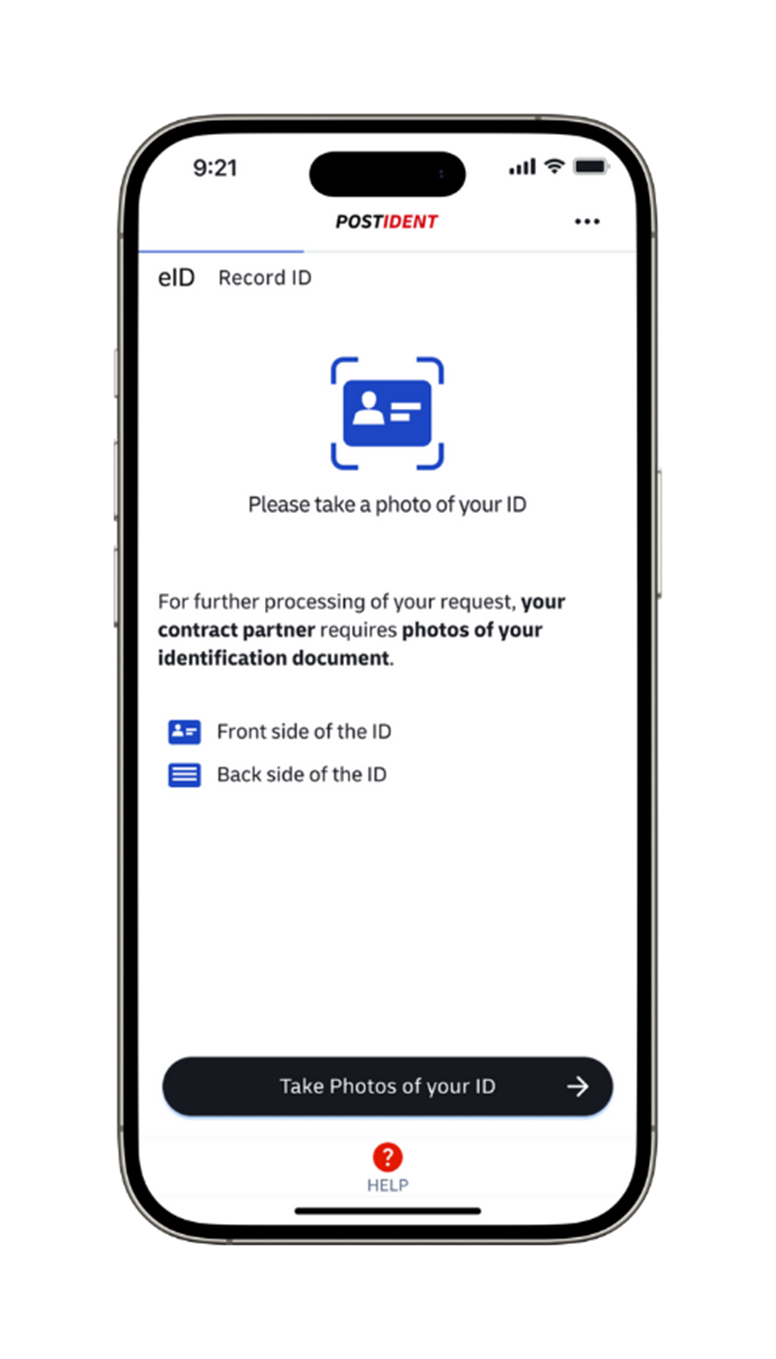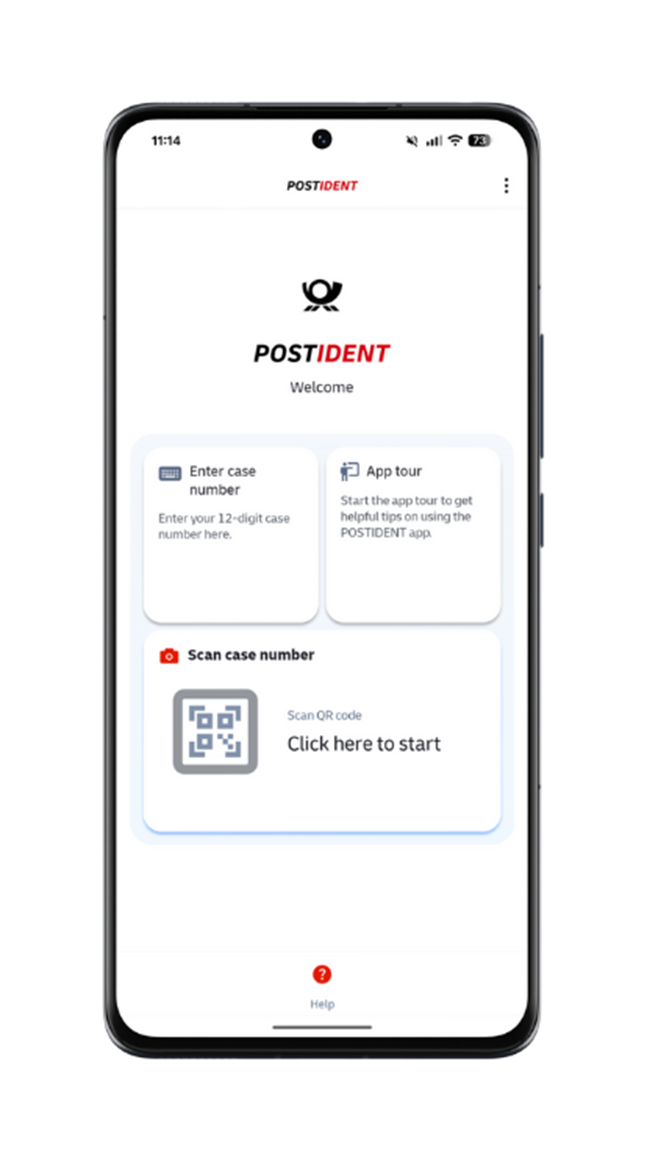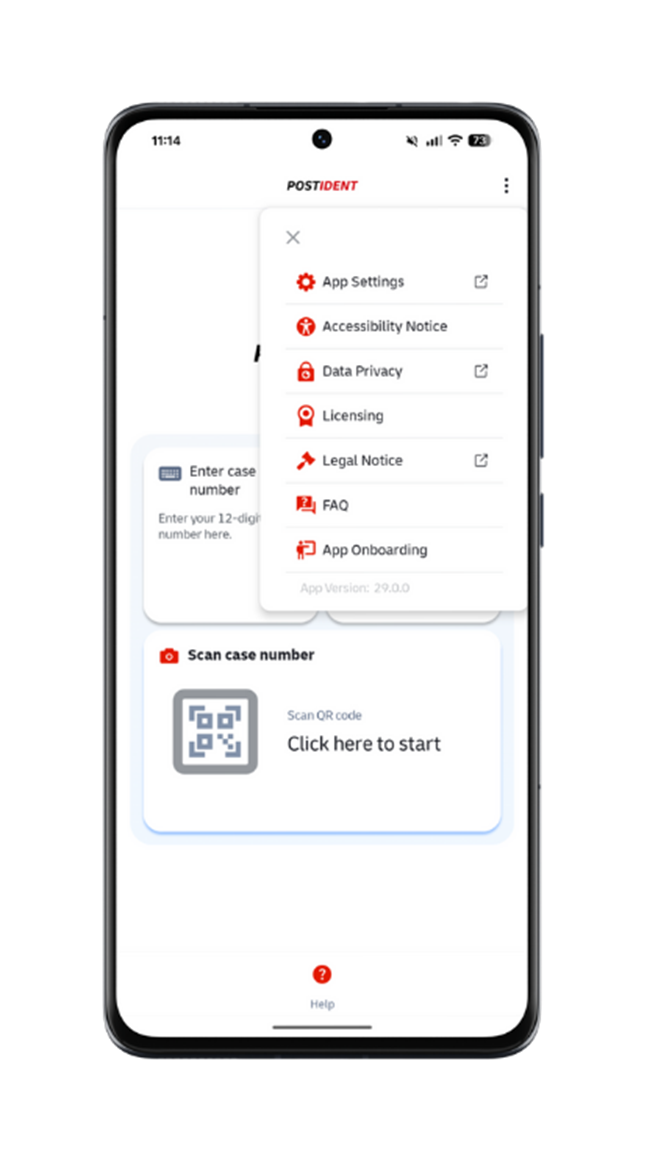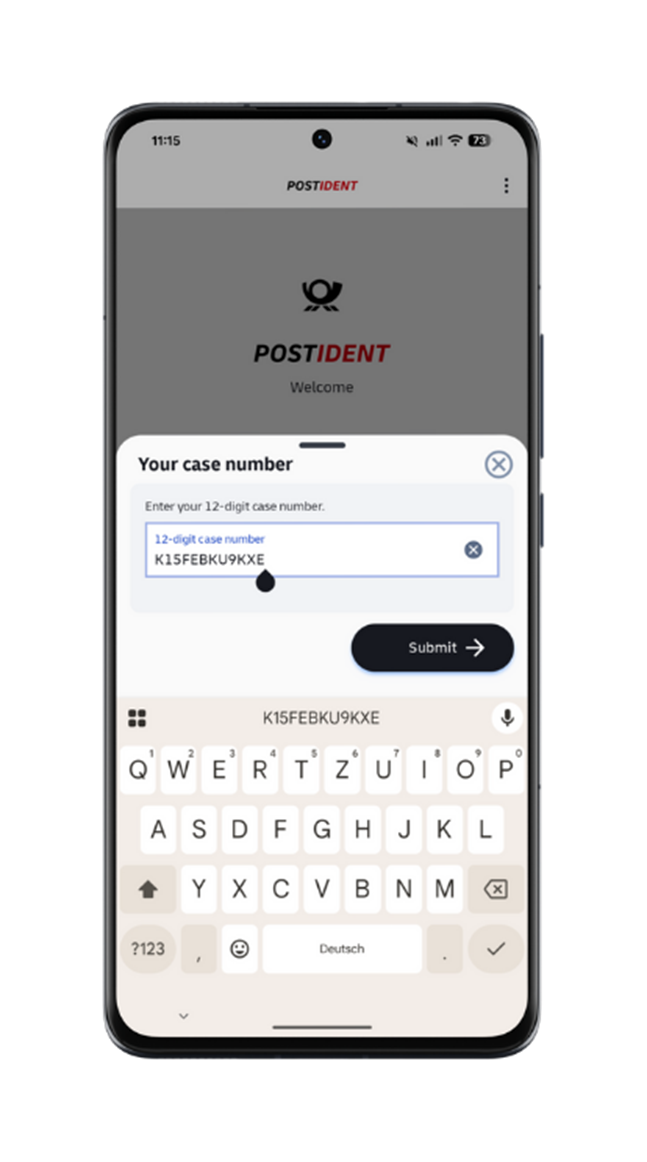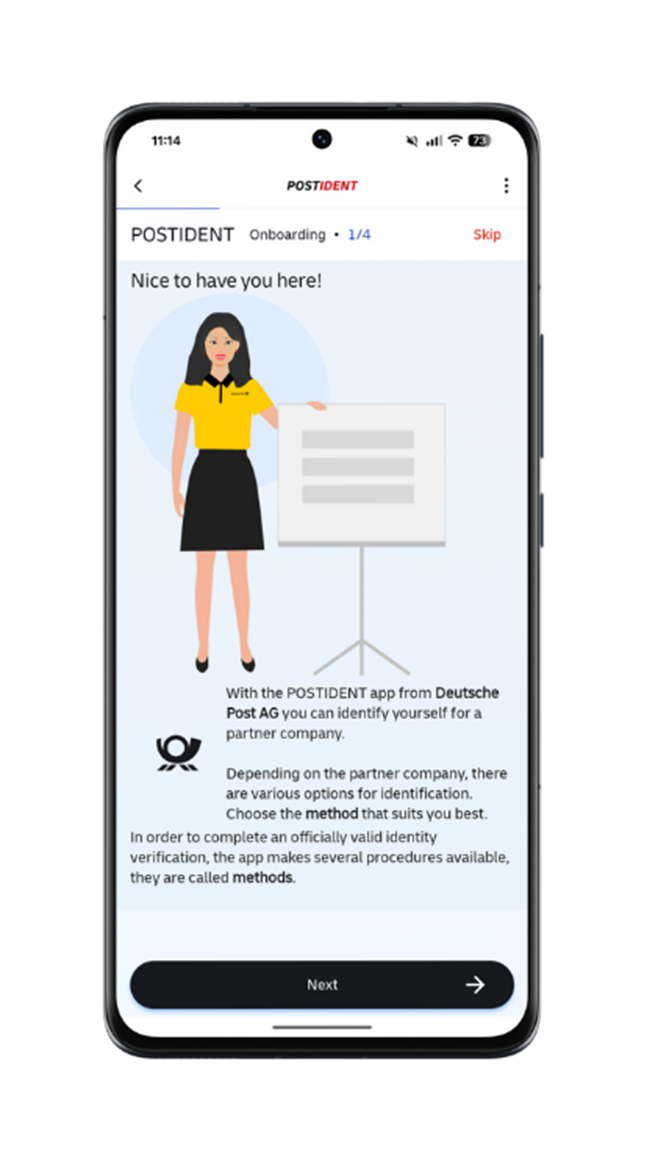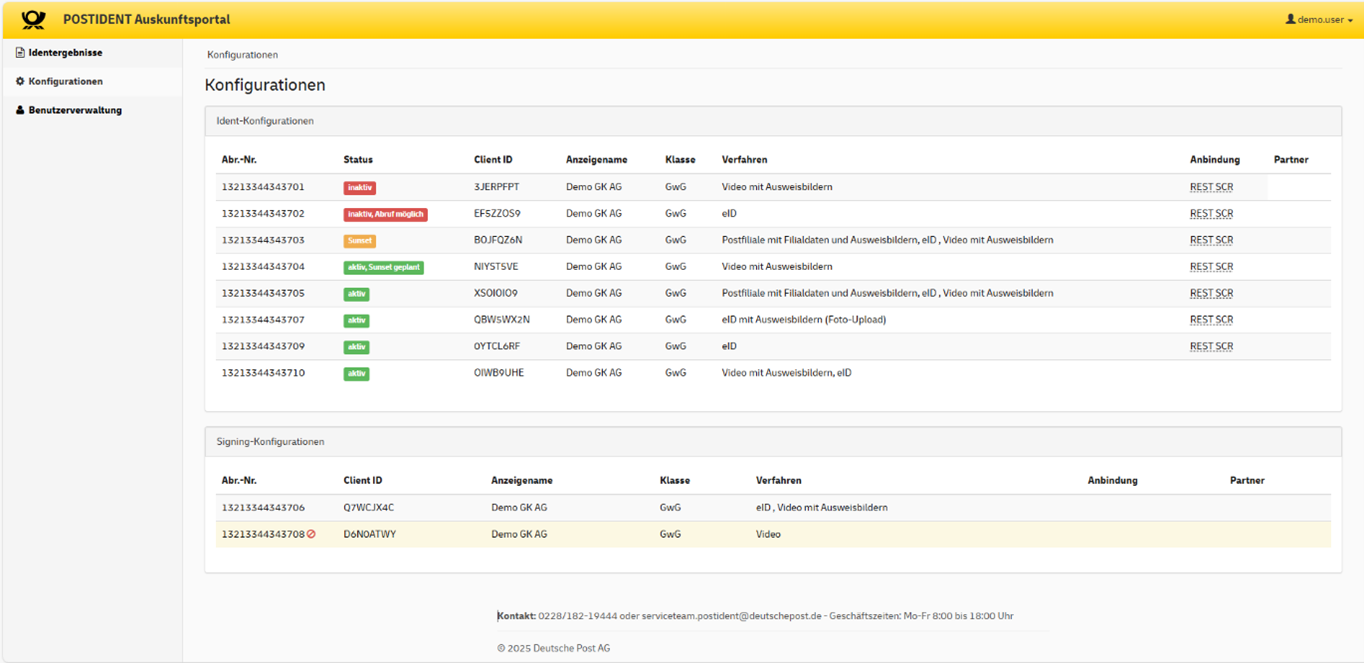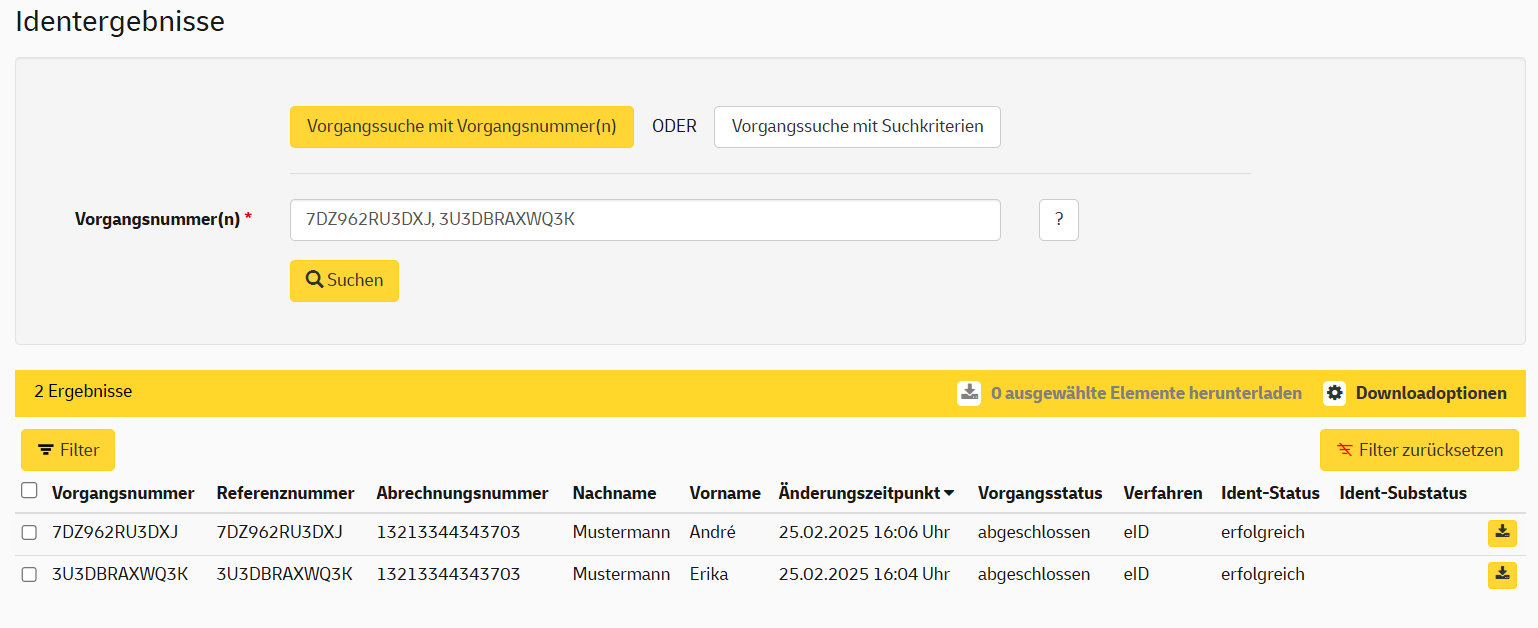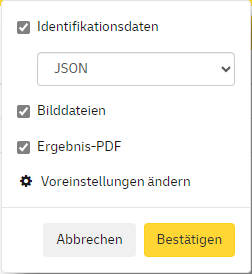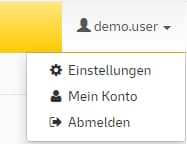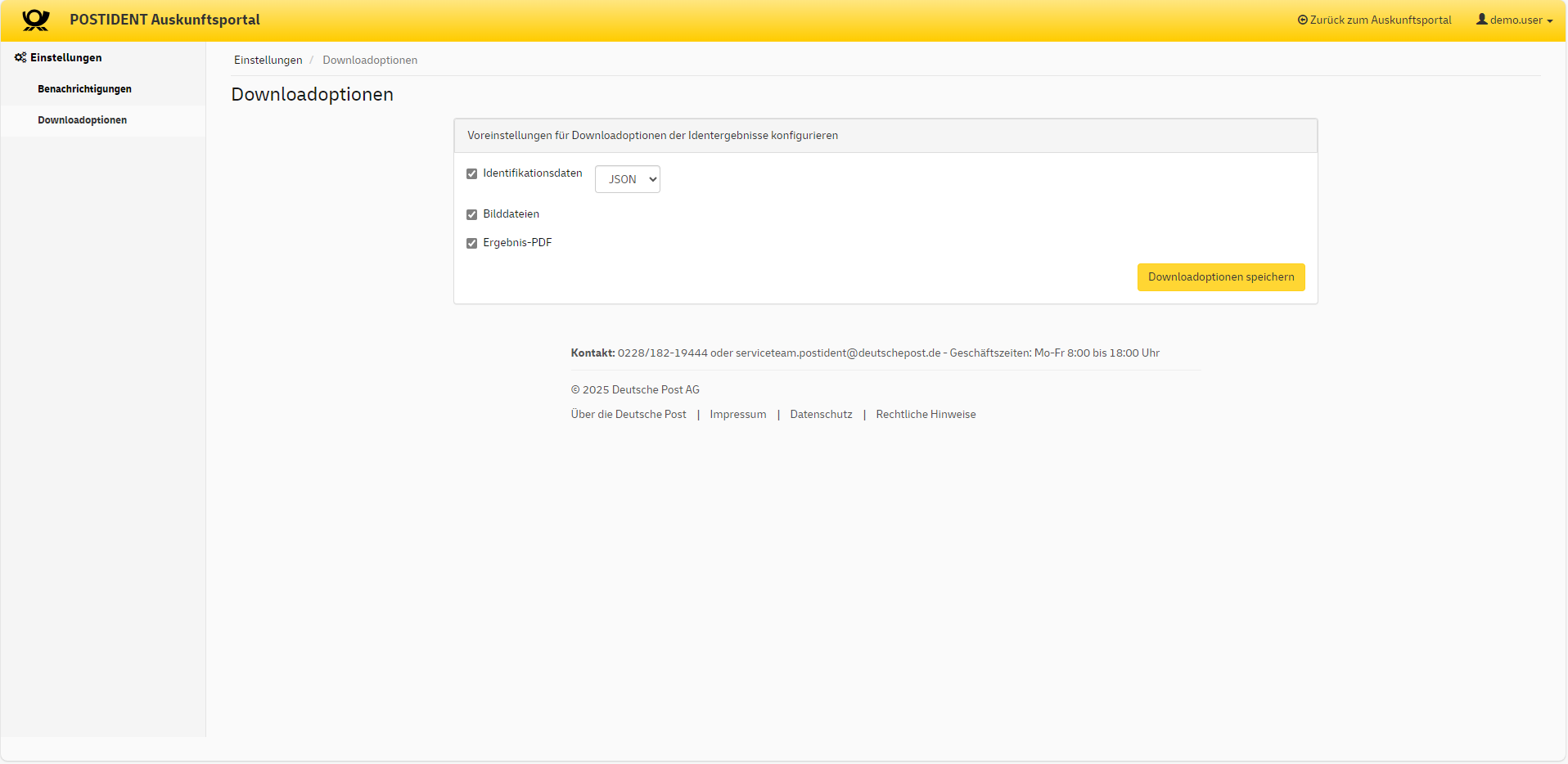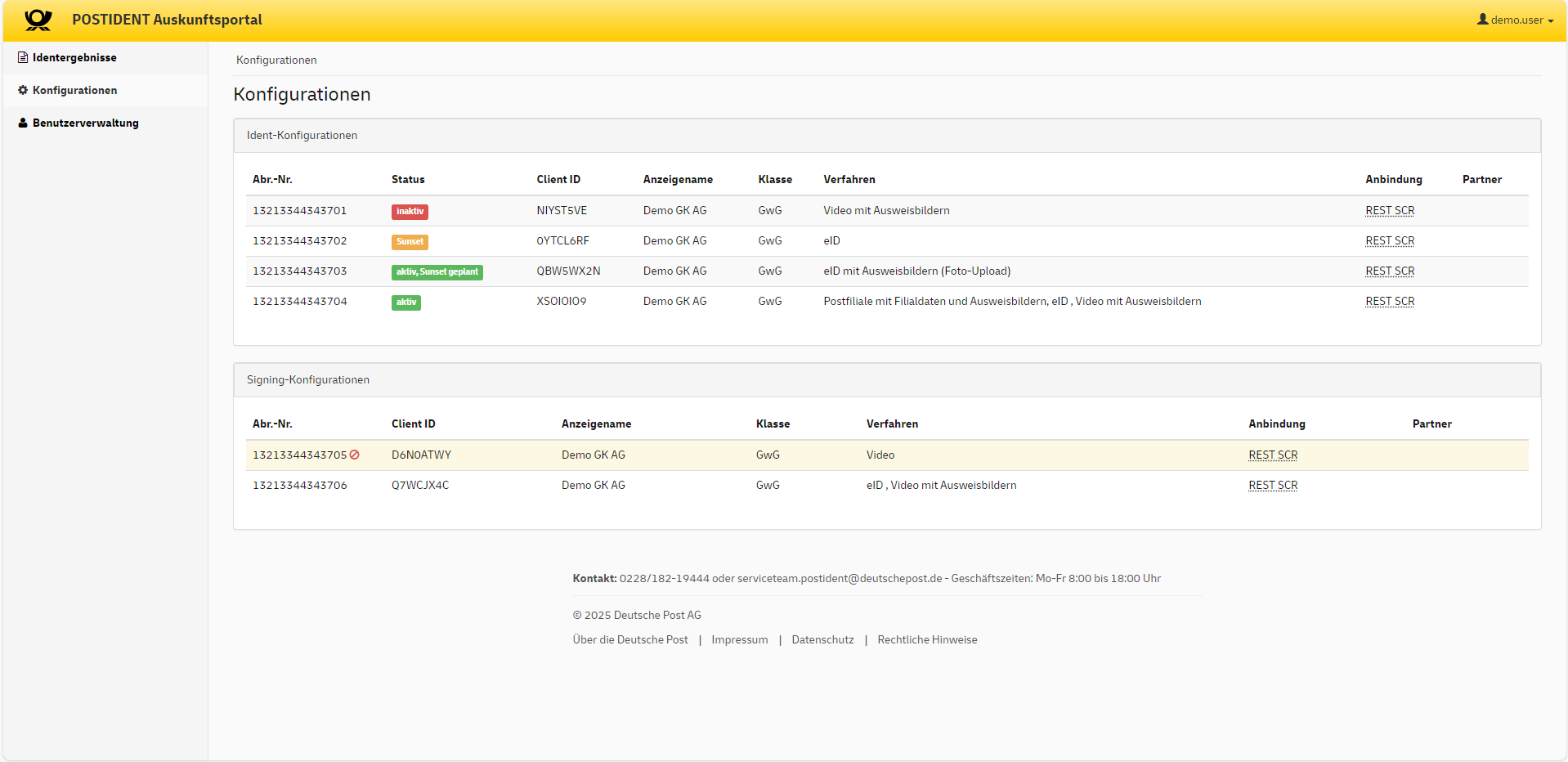POSTIDENT Zustellung
Einführung neuer Substatusgründe
Wie bereits via separater Kommunikation am 16.12.2025 angekündigt, wurde das Statusmodell auf Ebene der Substatusgründe um drei zusätzliche Substatusgründe erweitert:
| Status | Substatus | Substatusgrund | Änderung |
|---|---|---|---|
| declined | 25 Problem mit digitaler Einlieferung (Datenqualität) | 343 Vorgang nach Rückmeldung Geschäftskunde zu Datenproblem in eingelieferten Datensätzen geschlossen | NEU: Substatusgrund |
| declined | 25 Problem mit digitaler Einlieferung (Datenqualität) | 344 Sonstiges Problem in digitaler Einlieferung | NEU: Substatusgrund |
| declined | 27 Problem mit physischer Einlieferung | 345 Sonstiges Problem in physischer Einlieferung | NEU: Substatusgrund |
POSTIDENT Apps und SDK
Online-Ausweisfunktion (iOS): Zur Verbesserung der Usability und Barrierefreiheit wurden die bisherigen PIN-Eingabefelder als sog. "PIN-Boxen" umgebaut
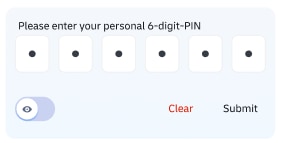
POSTIDENT in der Filiale (iOS): Anpassung des Matrix Code Layouts bei Verwendung des Darkmodes zur besseren Scanbarkeit in einer Post-Filiale

Übersicht aktueller Versionen:
| SDK | Version | Veröffentlichungsdatum | Ende offizieller Support | neue Features |
|---|---|---|---|---|
| iOS | 2.10 | 26.02.2025 | 26.08.2025 |
|
| iOS | 2.11 |
| ||
| iOS | 2.12 | 05.06.2025 | 05.12.2025 |
|
| iOS | 2.13 | 23.07.2025 | 23.01.2026 |
|
| iOS | 2.14 | 08.10.2025 | 08.04.2026 |
|
| iOS | 2.15 | vsl. KW 48 2025 | POSTIDENT App: Barrierefrei, modern, technologisch erneuert Die POSTIDENT App wurde neu gestaltet - barrierefrei, Darkmode-fähig und im Querformat nutzbar. Die neue UX sorgt für ein einheitliches Nutzungserlebnis über alle Verfahren. Technologisch setzt die App jetzt auf SwiftUI (iOS). Hinweis: Einige Verfahren folgen in den kommenden Wochen. Was wird im SDK neu sein?
| |
| Android | 2.10 | 25.02.2025 | 25.08.2025 |
|
| Android | 2.11 | 25.04.2025 | 25.10.2025 |
|
| Android | 2.12 | 05.06.2025 | 05.12.2025 |
|
| Android | 2.13 | 24.07.2025 | 24.01.2026 |
Estimation report of each SDK module's impact in size (MB) on a host app. The APK-Size is the total size of the raw Android Package file after building the project, including compiled code, resources, assets and libraries. The Download-Size is *the size users download from the PlayStore* when installing the app. It is an estimate and depends on PlayStore optimizations and device specs. Please also note that the estimated sizes are calculated using official Google/Android tools, but the actual sizes may be smaller. Post-Ident module impact on app size:
|
| Android | 2.14 | 15.10.2025 | 15.04.2026 |
|
| Android | 2.15 | vsl. KW 3 2026 | POSTIDENT App: Barrierefrei, modern, technologisch erneuert Die POSTIDENT App wurde neu gestaltet - barrierefrei, Darkmode-fähig und im Querformat nutzbar. Die neue UX sorgt für ein einheitliches Nutzungserlebnis über alle Verfahren. Technologisch setzt die App jetzt auf Jetpack Compose. Hinweis: Einige Verfahren folgen in den kommenden Wochen. Was wird im SDK neu sein?
| |
| Android | 2.16 | vsl. KW 7 2026 | Backup-Funktion Ab der Android SDK Version 2.16 wird das POSTIDENT SDK die Steuerung der Backup Funktion nicht mehr übernehmen. Infolgedessen kann die Host-App die Backup-Funktion selbst steuern. |
Release 31.0:
Der Rollout von Release 31.0 ist für den 17.03.2026 geplant.

